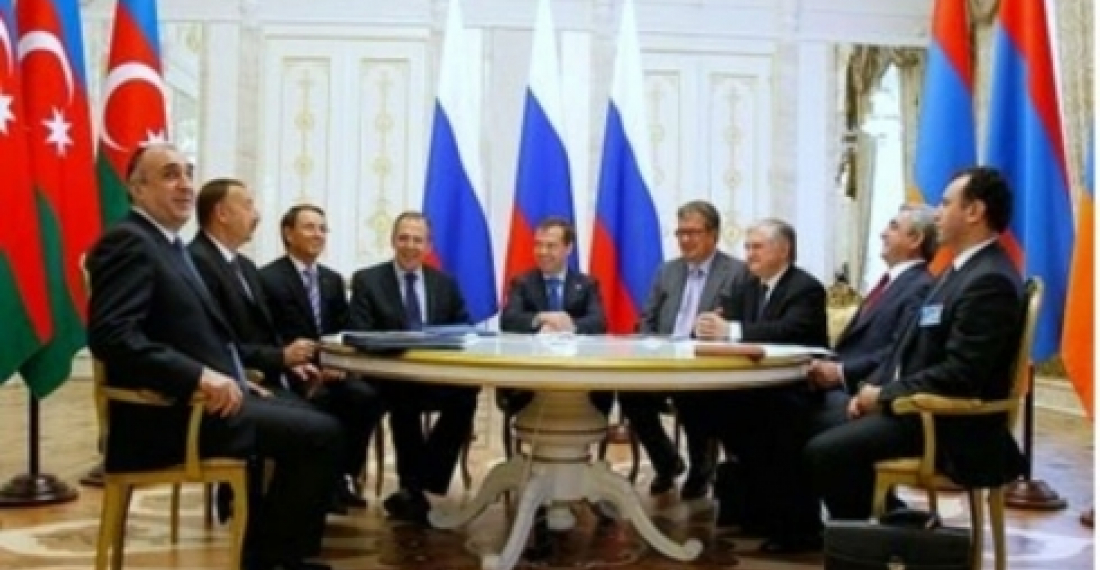The joint statement by the OSCE MG co-chair-countries' leaders in Deauville was very hopeful, President of Azerbaijan Ilham Aliyev said Tuesday when presiding over the meeting of the Cabinet to discuss outcomes of the socio-economic development in the first half of 2011. Azerbaijani media report.
The reason for such optimism of Aliyev was the statement's reference to the Helsinki Final Act where, as he thinks, the principle of territorial integrity does not contradict to the principle of self-determination and highlights resolution of conflicts within the principle of the territorial integrity of countries.
"This statement is based on Helsinki Final Act and underlines the change in status-quo. In this case, occupied Azerbaijani lands must be freed," Aliyev said. "Armenia has not wanted to change the status quo over the past 20 years. According to the Azerbaijani leader, co-chairs stepped up their activity. \"Azerbaijan accepted Madrid principles at a Sochi meeting initiated by the Russian President while Armenia refuses to do so."
For some unknown reasons, Aliyev forgot to say that the Azerbaijani party offered nearly 10 amendments in Kazan.
To note, a trilateral meeting of the Russian, Armenian and Azeri presidents in Kazan on June 24 resulted in no agreement on the Basic Principle of the peace process. The heads of Armenia, Azerbaijan and Russia have stated the achievement of mutual understanding on a number of issues, the settlement of which contributes to creation of conditions for approval of the Basic Principles. Afterwards Armenian Foreign Minister Edward Nalbandian blamed Azerbaijan for non-constructive approach and pointed out that no agreement on the basic principles was signed, as the Azerbaijani party presented new proposals. For his part, Elmar Mammadyarov blamed Armenia for \"making ultimate concessions from Azerbaijan and distorting the essence of the negotiations launched seven years ago".
Source: ARMINFO News Agency, Armenia







